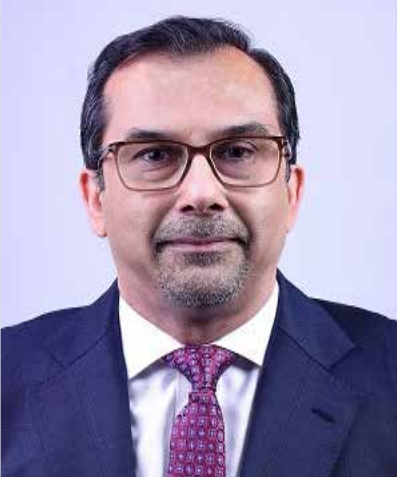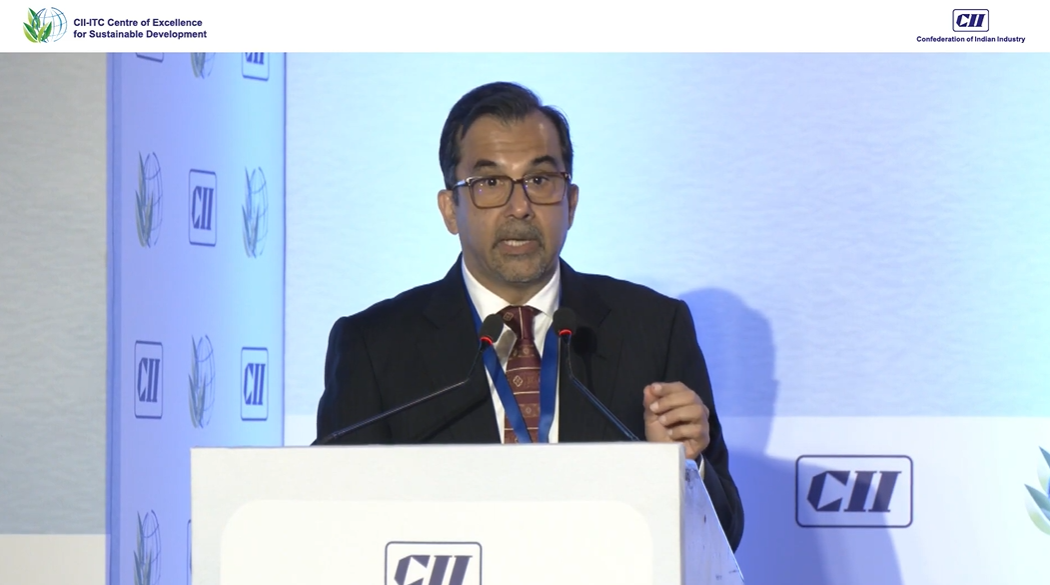Imperatives for Achieving Sustainability Consciousness

The three concerns of sustainability, ‘environment, economy and equity’ are interconnected; a balanced approach to these concerns is the need of the hour, says Sanjiv Puri
Mr Sanjiv Puri
President, Confederation of Indian Industry and
Chairman, Advisory Council, CII-ITC Centre of Excellence for
Sustainable Development and Chairman & Managing Director, ITC Ltd
Each stakeholder has to play a role in driving change for a Sustainability Conscious World. This was the clear message that emanated from the deliberations held at CII’s 19th Sustainability Summit, which brought together Government, Industry, practitioners and experts to work on sustainability related challenges.
I would like to highlight four clear action points emerging from the forum: The first is that India is clearly doing more than other countries in terms of leading global collaborations for environment protection, advocating a sustainable lifestyle, promoting resource optimization by building circular economy for critical sectors, or consistently over-delivering on the Nationally Determined Commitments (NDC) and decreasing our energy intensity per unit of GDP.
Prime Minister Shri Narendra Modi’s clarion call for sustainable lifestyles has received resounding success, with nations across the world accepting and adopting the United Nations Environment Assembly (UNEA) resolution on Lifestyle for Environment (LiFE). It is therefore indisputable that India has emerged as a leader in fostering sustainability consciousness, both among communities and industries.
In a world that’s undergoing transformation at an exponential pace, sustainable development is an opportunity as well as a challenge for any country; however, for India, sustainable development plays a significant role in the country’s ambitious national objective of Viksit Bharat.
The second important point is that there needs to be a course correction in the way the world foresees the changes needed to drive global sustainability. The first ever Global Stocktake Report at COP28 has warned that the global community is not on track to achieve the goals set out in the Paris Agreement. Therefore, the need for driving change for a sustainability conscious world has never been more critical than now. The rapid escalation of extreme weather events, in particular, is posing existential threats to societies globally. July 2024 was the warmest July in NOAA's 175-year record. India is extremely vulnerable to the impact of extreme climate events. Last year, India experienced extreme weather events on 318 out of 365 days. Studies indicate that there could be as much as 9% decline in crop yields due to climate change.
Even though India is the only G20 country that is on track to achieve the goals set out in the Paris Agreement, with two out of the three targets achieved 9 years before time and with emissions lower than the world average, our country is still facing the brunt of climate change. It is therefore imperative for all countries to take concerted efforts to accelerate their sustainability journey.
While some pathways are proven and viable, several more need to evolve and become viable at scale in order to address the goals of sustainable development. It is important to create the right incentives and disincentives and at the same time reduce the friction in the system because with economic viability, private investment is bound to flow and get accelerated.
Despite global efforts to move towards net zero, IPCC has warned of the likelihood of breaching the tipping point of 1.5 °C in the near term multiplying extreme weather events manifold. In this context, the summit brought to the fore the critical role of Climate Adaptation and the need to build resilience across value chains.
The CII Report on Building Climate Resilience for Indian Industry, launched at the summit, is a step forward in this direction. It embodies several significant recommendations for Industry and equally for society and policy making. The report contains important suggestions to enhance Industry’s climate resilience through a unified framework that identifies and assesses climate risks from extreme weather events and guides them in building robust adaptive strategies.
The third point I would like to highlight is the need for a balanced approach for achieving the societal goal of sustainability. While on one hand we are seeing actions being taken to decarbonize and promote circularity as well as energy transition, at the same time, steps should be taken to address critical planetary challenges such as loss of biodiversity, desertification and food security, to name a few.
During his address, Shri Bhupender Yadav, Minister for Environment, Forest and Climate Change, Government of India also articulated this aspect and suggested that countries need to have a balanced approach towards the three critical and interconnected sustainability concerns of environment, economy and equity.
The fourth aspect is the need to bring about a global mindset change in consumption behaviour. As the Minister said, “Consumption cannot be proscribed, but there should be mindful consumption rather than mindless utilization.”
As I conclude, I would also like to highlight the critical role that corporates play as economic organs of society in enhancing their contribution in the nation’s journey towards sustainability.
It is imperative that sustainability is mainstreamed in corporate strategy rather than being an add-on. When sustainability objectives are integrated into corporate strategy, very interesting and innovative pathways can be discovered to provide solutions that integrate simultaneously the creation not only of shareholder value but also environmental and social capital.
Video recording of Mr Puri’s speech during the 19th CII Sustainability Summit in New Delhi on 17 September 2024 is available here

This article was contributed by Mr Sanjiv Puri, President, CII and Chairman & Managing Director, ITC Ltd. It was first published in CII Communiqué, October 2024 edition.
Published on 14 November 2024
